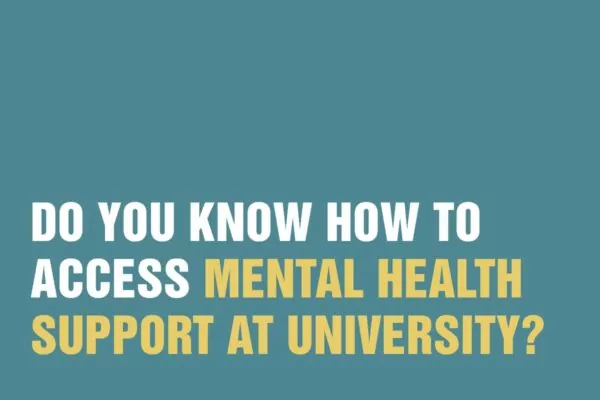Worrying can be part of the everyday fabric of our lives. We may worry about small things and big things. We may lie awake at night worrying about what we need to do the next day or how we’re going to fit everything in. Everyone will worry at some point in their lives, and it’s totally normal.
Anxiety isn’t normal. Anxiety can start to unravel the threads in the fabric of life. Sometimes anxiety and worry are terms used interchangeably, as if they were one and the same thing. But they’re not. Anxiety is a mental health condition that can seriously affect everyday functioning. People with anxiety will worry a lot, but people who worry a lot may not have anxiety.
The differences between anxiety and worry
Anxiety tends to be general. Worry tends to be specific. You may worry about being late for a meeting because there’s a train strike on. Anxiety can take your thinking to catastrophic levels, where you fear you will lose your job just for being a few minutes late for the meeting.
Anxiety can be in the body. Worry is in the head. Worrying tends to be a thinking thing: ruminating on thoughts and actions and coming up with a plan of what to do next. You may feel anxiety in your chest or stomach, like a tightness or a nausea, which has no logical reason attached to it. It can take over your body.
Anxiety is a response to a perceived threat. It is fear based. Anxiety activates the primitive part of the brain which triggers an adrenalised fight-or-flight response that can leave you reeling.
Anxiety loses perspective. Anxiety brings with it a sense of dread for some unimaginable horror in the future. It robs you of the present as you spend your time worrying about the what-ifs of life. Suffering from anxiety can prompt a reaction in you that feels way beyond what the situation would require. For example, the toast burns and your body reacts as though your house is on fire. Worry tends to be way more reasonable and will temporarily fret about the burnt toast and then get on with the day.
Worry is manageable. Anxiety can last for days and days. Anxiety can ‘free float’ and land on different issues and areas of life. Worry goes away. Anxiety doesn’t.
Diagnosing your anxiety
If you access counselling through the NHS for anxiety, your therapist will take you through some screening questions that can gauge whether or not you have anxiety. These questions are in the GAD-7 questionnaire, and you’re asked to rate how often you’ve felt this way in the last couple of weeks on a scale of 0 (not at all) to 3 (nearly every day):
- Feeling nervous, anxious or on edge.
- Not being able to stop or control worrying.
- Worrying too much about different things.
- Trouble relaxing.
- Being so restless that it is hard to sit still.
- Becoming easily annoyed or irritable.
- Feeling afraid as if something awful might happen.
If you score 11 and above you are said to have moderate levels of anxiety. A score of 16 and above is said to indicate more severe levels of anxiety.
The symptoms of generalised anxiety disorder
Psychiatrists diagnose generalised anxiety disorder (GAD) by using the criteria set out in the DSM-V diagnostic manual. To have a disorder the following symptoms need to be present:
- You’ve been excessively anxious and worrying more days than not, for at least six months, about a number of events or activities.
- You find it difficult to control the worry.
- Anxiety and worry are associated with three (or more) of the following six symptoms:
- Restlessness and feeling on edge.
- Easily fatigued.
- Difficulty concentrating or mind going blank.
- Muscle tension.
- Sleep disturbance.
- The anxiety, worry or physical symptoms are causing you significant distress or are affecting your personal or professional functioning.
- How you feel is not impacted by a substance, medication, or another medical condition.
Getting help for your anxiety
If your worrying is prolonged and profuse, and everyday life is affected, then that could be a sign that you need to seek help for your anxiety. Studies suggest that moderate to severe anxiety can be effectively treated with a combination of medication and therapy. See your GP in the first instance to decide if medication can help to manage your symptoms.
Counselling support is available easily and quickly through the NHS in Lambeth and Wandsworth. At The Awareness Centre we also offer support for anxiety through our low-cost counselling service, where session fees start from £20.
Counselling and CBT can support you in challenging your thinking patterns. It can also help you identify ways to self-soothe when anxiety strikes, such as exercise, breathing, meditation, and creative activities.
Get in touch today to book an appointment with one of our therapists who specialise in working with anxiety. Call 020 8673 4545 or email [email protected].








2 Comments. Leave new
Although it is a disorder that occurs most frequently in children, it can also be suffered in adolescence, youth and even during adulthood.
Its symptoms may be related to the characteristics of panic disorder since there are episodes of sudden feelings of intense anxiety.
https://everydayscience.blog/separation-anxiety-disorder-symptoms-causes-and-treatment/
Many thanks for taking the time to read our blog post and to share your own post on separation anxiety disorder. Always good to have awareness around children and adolescents, and to be attuned to their needs, especially if their anxiety is escalating.